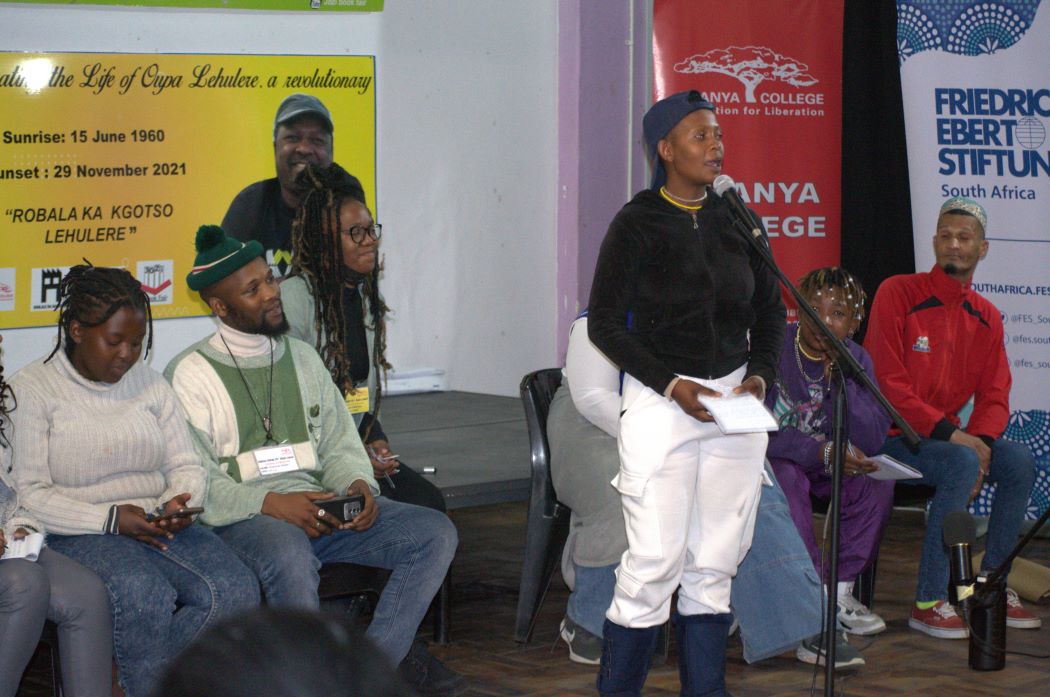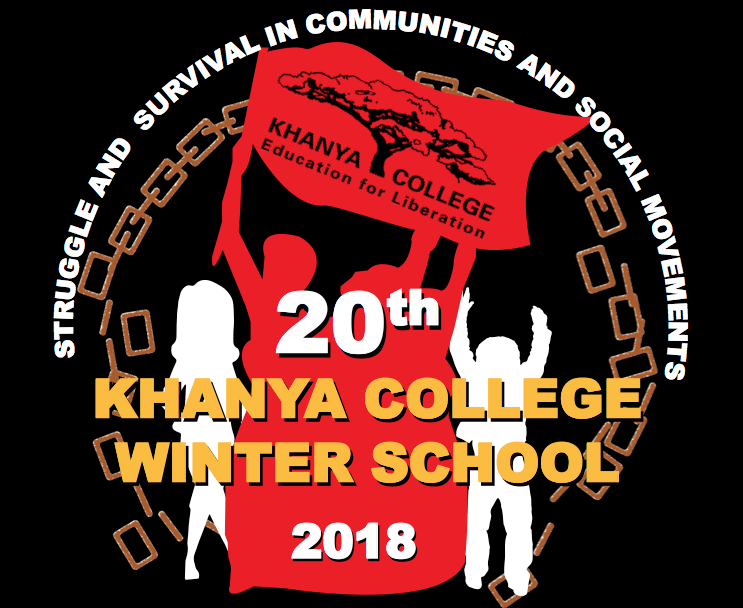On the third day of the winter school, the definition of different social classes, their benefits, and their role in running the country sparked a heated debate. Participants agreed that there are three social classes in South Africa. They said these are the working class which are the people from poor or previously marginalised backgrounds, the middle class – medical doctors and lawyers and the ruling class which are the owners of land and money in South Africa.
This debate highlighted race issues as the biggest problem in social class status, as participants said that race and social class are linked because the working class is mostly black people, and the middle and ruling classes are mostly white people. The participants felt like the consequences of neoliberalism and capitalism mostly determines people’s status in the country noting that not having money is the reason black people are mostly in the lower working class. The discussion focused on how the South African Constitution affects these issues and whether it has truly changed the country since the apartheid era.
Comrade Mvuselelo Mngxuma from Abahlali Base Freedom Park argued that the South African Constitution, even though it seems progressive, still allows the inequalities of the apartheid era to continue. He pointed out the land issue, which he thinks is very important when discussing wealth and power within the three social classes. He noted that land is mostly owned by white people who took it during colonisation and apartheid. Mngxuma mentioned Section 25 of the Constitution that interprets the property clause, saying it is the reason why black people suffer injustices when it comes to the land question.
He felt that black South Africans still did not have their rightful land because of the constitution and that the promises made after apartheid have not been fulfilled. According to him, the current Constitution is too like the oppressive systems and law of the past. Comrade Felicia Lethese from the Children’s Movement spoke the problems caused by local municipalities in making land ownership difficult for black South Africans. She argued that these municipal authorities refuse to give black people title deeds, especially in places where communities have grabbed and occupied land, even though owners have no problem with land that has already been taken. This refusal stops people from claiming their land and she feels like this is a continuation of apartheid’s exclusionary practices.
Comrade Felicia said that municipalities act as if land redistribution is wrong, treating it as if people are trying to take land without paying for it. This argument was focused how the constitution still oppresses black people and favours white landowners that are sitting comfortably in middle and ruling class. The debate became most intense when participants discussed the key role of the Constitution in addressing social inequalities. Some participants believed that race and class issues are closely connected and cannot be separated. While others felt that the Constitution has made progress in fixing past injustices.
Comrade Maria provided a different perspective; she was emphasising the positive changes that have come since the end of apartheid. she acknowledged that while there are still issues, the Constitution has brought about great improvements in the lives of black people. she noted that during apartheid, black people faced severe oppression, such as death penalty law where mostly black men were the ones being killed, which does not happen anymore. Also, she noted that the Constitution now includes women’s rights, which has empowered women and given them equal benefits and opportunities that they did not have before during the apartheid era. According to Comrade Maria, this is a significant achievement for the country.
The debate showed the struggles and obstacles of South Africa’s current social and economic issues that oppresses the working class, this noted capitalism and its consequences as the big factor of why black people are the majority in the working class, which is the lower class in the social status of the country While there have been important achievements, especially in gender equality and the end of oppression, many people feel that the legacy of apartheid still benefits the middle and the ruling class, mainly white people.
This shows that race issues are still a huge problem in the country. This point is very well illustrated by the land ownership and economic inequality in the country. It was evident in the session that for some participants, the constitution represents progress, but for others, it is a reminder that much work still needs to be done to address the injustices and oppression caused by the constitution.
This article was submitted as part of the Imbila Yesu publication produced daily for the duration of the Winter School in 2024 (14-20 July 2024). It appeared in Edition 4, released on 19 July 2024. You may republish this article, so long as you credit the author and Karibu! Online (www.Karibu.org.za), and do not change the text. Please include a link back to the original article.


 Download PDF
Download PDF
